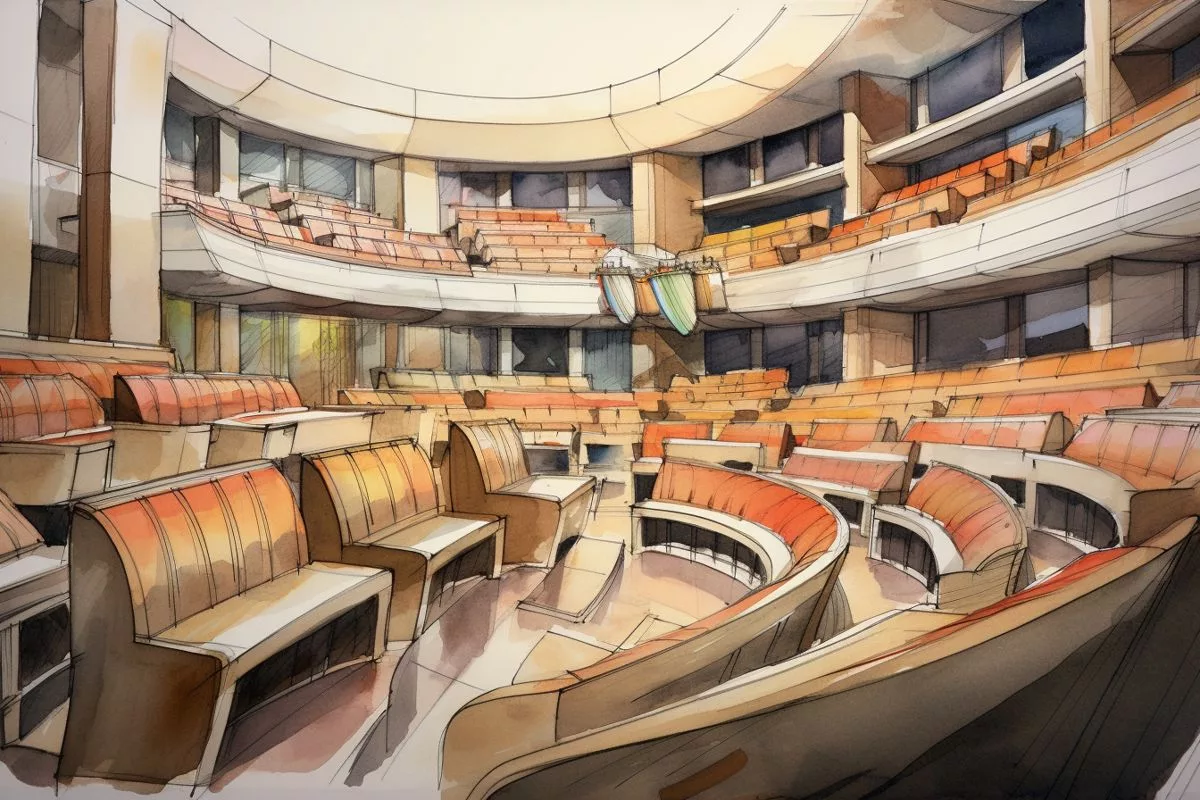South Africa’s National Assembly and National Council of Provinces are set to make influential decisions on various bills and committee reports, including the Eskom Debt Relief Amendment Bill and the Public Procurement Bill, among others. The legislative responsibilities will then transition to the NCOP, where discussions will focus on bills such as the National Health Insurance Bill aimed at overhauling the healthcare sector. The Parliament’s dedication to transparency and public participation underscores its commitment to open, accessible governance, and reminds us of the people behind these significant decisions.
What is on South Africa’s Legislative Agenda for 2023?
South Africa’s National Assembly and National Council of Provinces will be making influential decisions on various bills and committee reports on their legislative agenda for 2023. Key bills include the Eskom Debt Relief Amendment Bill, the Public Procurement Bill, the Adjustments Appropriation Bill, and the National Small Enterprise Amendment Bill. The legislative responsibilities will transition to the NCOP later that day, as it holds its hybrid plenary at the NCOP Chamber.
An Overview of the Legislative Agenda
In the complex dance of governance where each move is pivotal, South Africa’s National Assembly (NA) and National Council of Provinces (NCOP) are prepared to make several influential decisions. Important items on the agenda for their upcoming hybrid plenaries include various bills and committee reports, among them the Budgetary Review and Recommendation Reports (BRRR). These will be instrumental in moulding the nation’s socio-economic environment.
On 6th December 2023, the esteemed Good Hope Chamber will reverberate with the voices of both present members and those joining virtually. The NA’s discussions will focus on four key bills, setting the stage for sweeping reforms across the country.
Key Bills and Discussions
The Eskom Debt Relief Amendment Bill, one of the bills under consideration, has the potential to lighten the load for the government-run electricity public utility. The Public Procurement Bill, another item on the agenda, seeks to refine public sector procurement procedures, promoting transparency and efficiency.
The Adjustments Appropriation Bill and the National Small Enterprise Amendment Bill further underscore the government’s resolve to stimulate economic growth and bolster small businesses, an essential part of the South African economy. These important discussions will be informed by insights from the 2023 Medium-term Budget Policy Statement and considerations on proposed changes to the Joint Rules.
The day’s proceedings will incorporate a human touch with the opportunity for members to give farewell speeches, a tradition of the National Assembly, reminding us of the people behind these significant decisions.
The NCOP’s Legislative Role
The legislative responsibilities will then transition to the NCOP later that day, as it holds its hybrid plenary at the NCOP Chamber. The Council will deliberate on three bills. The Judicial Matters Amendment Bill and the Regulation of Interception of Communications and Provision of Communication-Related Information Amendment Bill are both vital to the country’s legal structure. The National Health Insurance Bill, aimed at overhauling the healthcare sector, will be the focal point of the discussion.
In addition to the legislative agenda, the Council will evaluate several committee reports, including the Report of the Ad Hoc Joint Committee on Flood Disaster Relief and Recovery, showcasing the government’s proactive stance on disaster management.
Open Governance and Public Participation
The South African Parliament’s dedication to transparency is unequivocal. It invites the media and the public to observe its proceedings, either in person or through digital platforms, further underscoring their commitment to open, accessible governance. From livestreams on Parliament’s YouTube channel to updates on their Twitter page, this inclusive approach ensures that the citizens remain central to the legislative process.
Amidst all this, it’s worth taking a moment to recognize Ms Zukiswa Veronica Ncitha, a member of the African National Congress on the provincial list for the province of Eastern Cape. Her widespread participation in a variety of committees, from Intelligence to Finance to Public Enterprises and Communication, illustrates the commitment and depth of knowledge our representatives contribute to the parliamentary scene.
As we anticipate these important legislative advancements, it’s crucial to recognize the role of every participant in this process, from the public to the parliamentarians to the media. This cooperative dance of democracy, guided by the enduring principles of the Constitution, continues to shape the nation.
What bills and committee reports are on South Africa’s legislative agenda for 2023?
South Africa’s National Assembly and National Council of Provinces will be making influential decisions on various bills and committee reports on their legislative agenda for 2023. Key bills include the Eskom Debt Relief Amendment Bill, the Public Procurement Bill, the Adjustments Appropriation Bill, and the National Small Enterprise Amendment Bill.
What is the purpose of the Eskom Debt Relief Amendment Bill?
The Eskom Debt Relief Amendment Bill has the potential to lighten the load for the government-run electricity public utility.
What is the purpose of the Public Procurement Bill?
The Public Procurement Bill seeks to refine public sector procurement procedures, promoting transparency and efficiency.
What is the role of the National Council of Provinces in the legislative process?
The legislative responsibilities will then transition to the NCOP later that day, as it holds its hybrid plenary at the NCOP Chamber. The Council will deliberate on three bills and evaluate several committee reports.
How does South Africa’s Parliament ensure transparency and public participation in the legislative process?
The South African Parliament’s dedication to transparency is unequivocal. It invites the media and the public to observe its proceedings, either in person or through digital platforms, further underscoring their commitment to open, accessible governance.
Who is Ms. Zukiswa Veronica Ncitha and what is her role in the parliamentary scene?
Ms Zukiswa Veronica Ncitha is a member of the African National Congress on the provincial list for the province of Eastern Cape. Her widespread participation in a variety of committees illustrates the commitment and depth of knowledge our representatives contribute to the parliamentary scene.








